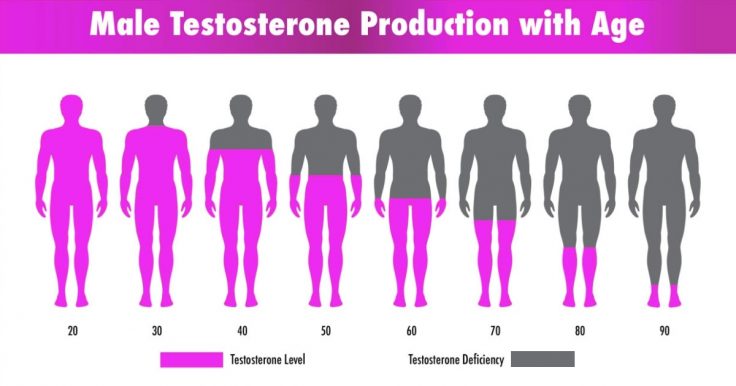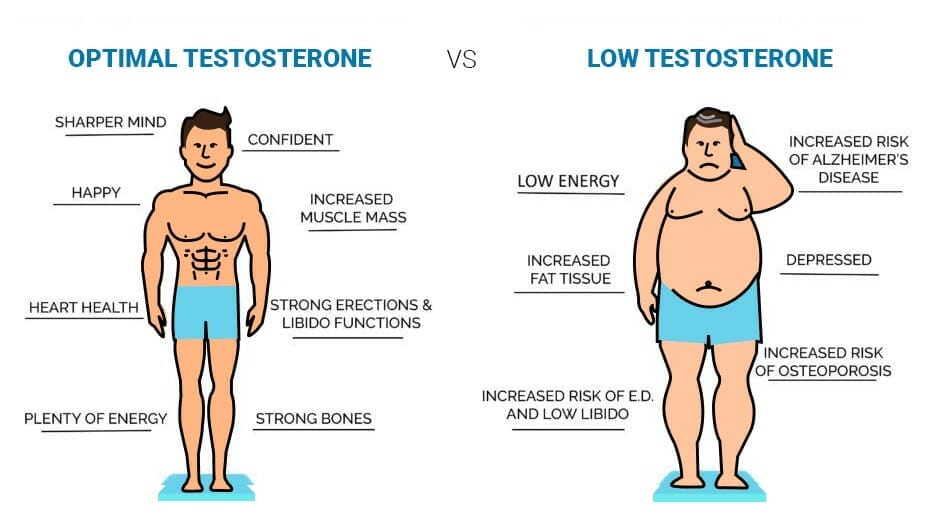Starting from age 40 men can slowly decrease testosterone percentages by 1 every year causing them to have extremely low testosterone levels in their older ages

Decreasing Testosterone Levels in Older Men

Testosterone, the primary male sex hormone, plays a crucial role in defining masculine characteristics, maintaining muscle mass, regulating bone density, and influencing libido. However, as men age, it’s common for testosterone levels to gradually decline. Starting from the age of 40, men may experience a reduction of approximately 1% in testosterone percentages each year. This decline can lead to significantly low testosterone levels during their older ages, leading to a range of symptoms and health concerns.
Low testosterone, also referred to as testosterone deficiency or hypogonadism, can have a significant impact on men’s overall health and well-being. While the gradual decline in testosterone levels is a natural part of aging, some men can experience symptoms that affect their quality of life.
Some common symptoms of low testosterone include decreased energy levels, reduced muscle mass, increased body fat, erectile dysfunction, diminished sexual desire, mood swings, and cognitive changes. Additionally, men with low testosterone may also experience changes in sleep patterns, such as insomnia or increased sleepiness during the day.

Although declining testosterone levels are largely inevitable, it’s essential to be aware of the potential impact they can have on various aspects of a man’s life. One way to address low testosterone is through hormone replacement therapy (HRT). This treatment involves supplementing testosterone to bring levels back to a healthy range, thus alleviating the associated symptoms.
However, it’s crucial to note that not all men require hormone replacement therapy, and treatment decisions should be made based on an individual’s symptoms and overall health. Regular check-ups with a healthcare provider can help determine the appropriate course of action.
In addition to medical interventions, certain lifestyle modifications can also play a role in managing testosterone levels. Engaging in regular physical activity, maintaining a healthy body weight, managing stress levels, getting adequate sleep, and following a balanced diet can contribute to hormonal balance.
It’s important for men to remember that testosterone decline is a natural occurrence, and embracing a healthy lifestyle can help mitigate the associated symptoms. By staying informed and proactive about their health, men can promote overall well-being as they age.
To learn more about testosterone and its effects on men’s health, you can refer to Harvard Health.
Tags
Share
Related Posts
Quick Links
Legal Stuff

